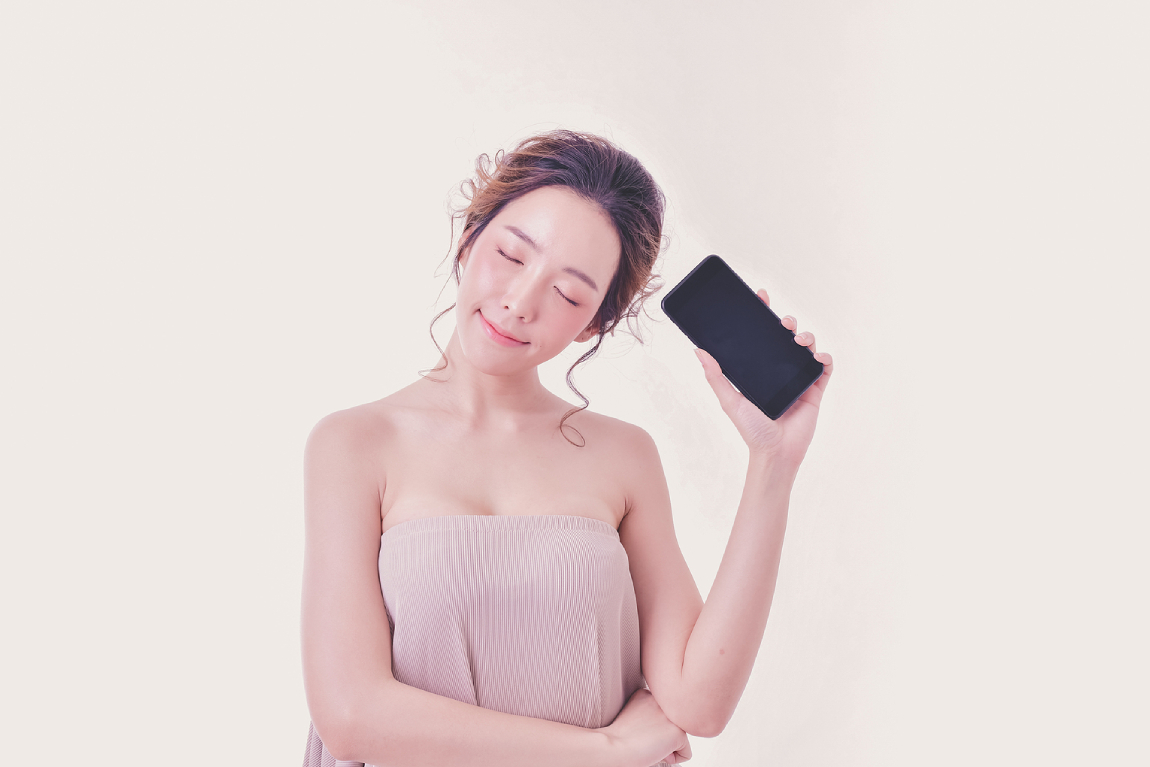
Every day, we find ourselves glued to screens — smartphones, laptops, tablets, and TVs dominate modern life. While these devices keep us connected and entertained, there’s growing concern about the impact of blue light emitted from screens on our skin health. Could your screen time be contributing to premature ageing? Let’s explore what blue light is, how it affects your skin, and what you can do about it.
Blue light, also known as high-energy visible (HEV) light, is a portion of the visible light spectrum with relatively short wavelengths and high energy. Unlike UV rays from the sun, blue light is not typically associated with sunburn or skin cancer, but it does penetrate deeper into the skin layers. Our devices and indoor lighting produce significant amounts of blue light, exposing our skin to it for extended periods.
This type of light can penetrate all the way to the dermis, the skin’s deepest layer. That means it doesn’t just sit on the surface; it can disrupt essential biological processes, accelerating damage over time. That’s why many dermatologists now recommend integrating an anti-ageing treatment into your daily routine if you spend considerable time on screens.
Recent research suggests that blue light can contribute to premature ageing by generating oxidative stress in the skin. Oxidative stress occurs when harmful molecules called free radicals overwhelm the skin’s natural antioxidant defences. This imbalance accelerates the breakdown of collagen and elastin—two vital proteins responsible for skin firmness and elasticity. As collagen deteriorates, fine lines, wrinkles, and sagging skin become more pronounced.
Furthermore, blue light exposure can worsen hyperpigmentation. People with darker skin tones may notice uneven skin tone or dark spots becoming more visible after prolonged screen use. This happens because blue light stimulates melanin production, the pigment that gives skin its colour.
There is also evidence that exposure to blue light can increase inflammation and disrupt the skin barrier. This weakens the skin’s ability to retain moisture, leaving it dull, dry, and more prone to irritation.
While the intensity of blue light from screens is lower than natural sunlight, the duration of exposure is often longer. Most of us spend several hours a day staring at digital devices, which can cumulatively increase oxidative stress on the skin. Studies have found that blue light from devices can induce skin damage, albeit less severe than UV light, but still notable enough to contribute to ageing over time.
Think of it this way: one day of screen time might not show visible effects, but repeated exposure over months and years can quietly degrade your skin’s structural integrity.
1. Use Anti-Ageing Treatment Products with Antioxidants: Incorporate skincare products rich in antioxidants such as vitamin C, vitamin E, and niacinamide. These ingredients help neutralise free radicals caused by blue light exposure, protecting your skin’s collagen network.
2. Limit Screen Time When Possible: Try to take regular breaks from screens, especially before bedtime, to reduce blue light exposure. Implementing the 20-20-20 rule (look at something 20 feet away for 20 seconds every 20 minutes) also benefits your eyes and skin.
3. Apply Sunscreen Daily: Many sunscreens now include protection against HEV light, so choose one that covers blue light to shield your skin during the day. Even indoor environments can lead to exposure.
4. Consider Blue Light Filtering Glasses: If you work long hours on devices, blue light filtering glasses can reduce the amount of HEV light reaching your skin and eyes.
5. Maintain a Healthy Skincare Routine: Cleansing, moisturising, and targeted anti-ageing treatment can help your skin stay resilient against environmental stressors, including blue light. Schedule in regular facial treatments to achieve that Korean glass skin that radiates youth.
6. Use a Screen Shield or Night Mode: Reducing the brightness of your screen or switching to night mode, which often filters out blue light, can also be beneficial.
While at-home skincare routines are essential, professional anti-ageing facial treatments offer deeper rejuvenation and long-term benefits. These treatments are typically administered by licensed aestheticians and are designed to repair and protect the skin from ageing factors like blue light.
Professional treatments not only target the visible signs of ageing but also enhance the absorption of your daily skincare products, maximising their effectiveness.
Although the face gets the most attention in skincare, blue light impacts all exposed skin areas. Hands, neck, and arms also receive light exposure, especially if you use devices frequently. Extending your skincare routine to these areas can help protect and maintain overall skin health.
Your screen habits may be silently contributing to premature skin ageing, but understanding the risks of blue light empowers you to take action. With simple lifestyle adjustments and a solid anti-ageing treatment routine, you can shield your skin from digital stressors and keep it looking youthful.
At Adonis Skincare, we offer facial treatments designed to protect and rejuvenate your skin in the modern digital world. Ready to fight blue light damage and restore your natural glow? Explore our range of skincare solutions today and start your journey to healthier, younger-looking skin!
Aging is a natural process, but visible changes such as sagging facial skin, loss of firmness, and reduced elasticity can affect how confident we feel about our appearance.…
Vitamin C serum has become a cornerstone of modern skincare, and for good reason. Backed by extensive dermatological research, Vitamin C is known for its ability to brighten…